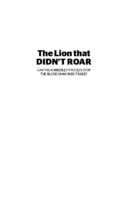The Lion That Didn't Roar
Abstract
In 2017 it will be Australia’s turn to chair the Kimberley Process Certification Scheme (KP), an international organisation set up to regulate the trade in diamonds. Diamonds are a symbol of love, purchased to celebrate marriage, and it is therefore deeply ironic that the diamond trade has become linked with warfare and human rights violations committed in African producer countries such as Sierra Leone, the Democratic Republic of Congo and, more recently, Zimbabwe and Angola. In their quest for diamonds, or by using diamonds to purchase weapons, armed groups in these countries have engaged in recruiting child soldiers, amputating limbs, and committing rape and murder. In response to the problem, the international community, non-governmental organisations and key industry players such as De Beers combined forces to create the Kimberley Process in 2002. The KP uses an export certificate system to distinguish the legitimate rough diamond trade from so-called ‘blood diamonds’, which are also known as ‘conflict diamonds’. This book considers the extent to which the KP, supported by other agencies at the international and national levels, has been effective in achieving its mandate. In so doing, it presents an original model derived from the domain of regulatory theory, the Dual Networked Pyramid, as a means of describing the operation of the system and suggesting possible improvements that might be made to it. Nigel Davidson spoke with 936 ABC Hobart about what Australia can do to help stop blood diamonds. Listen to the full interview here.
Keywords
africa; diamond trade; kimberley process; Blood diamond; Human rights; United Nations Security CouncilDOI
10.22459/LDR.10.2016ISBN
9781760460259OCN
1030816489Publisher
ANU PressPublisher website
https://press.anu.edu.au/Publication date and place
2016Classification
Africa
Organized crime
Extractive industries


 Download
Download Web Shop
Web Shop